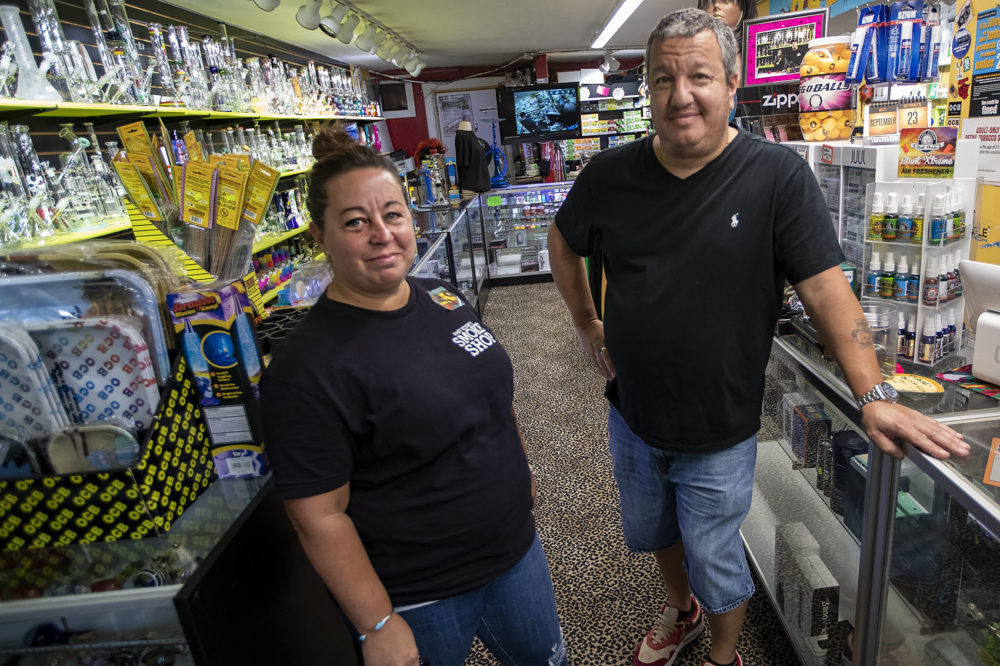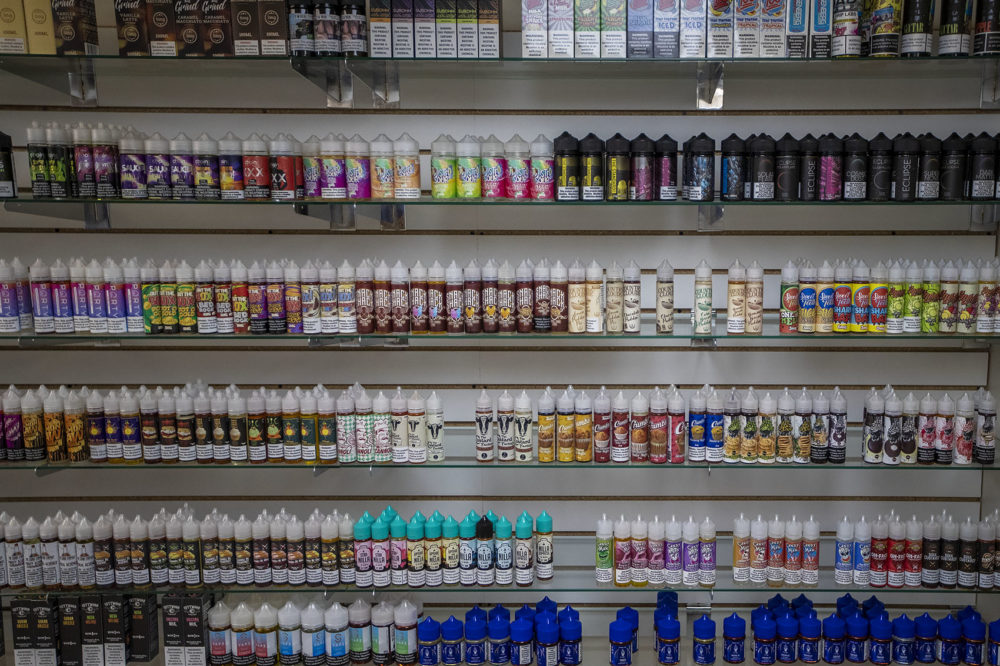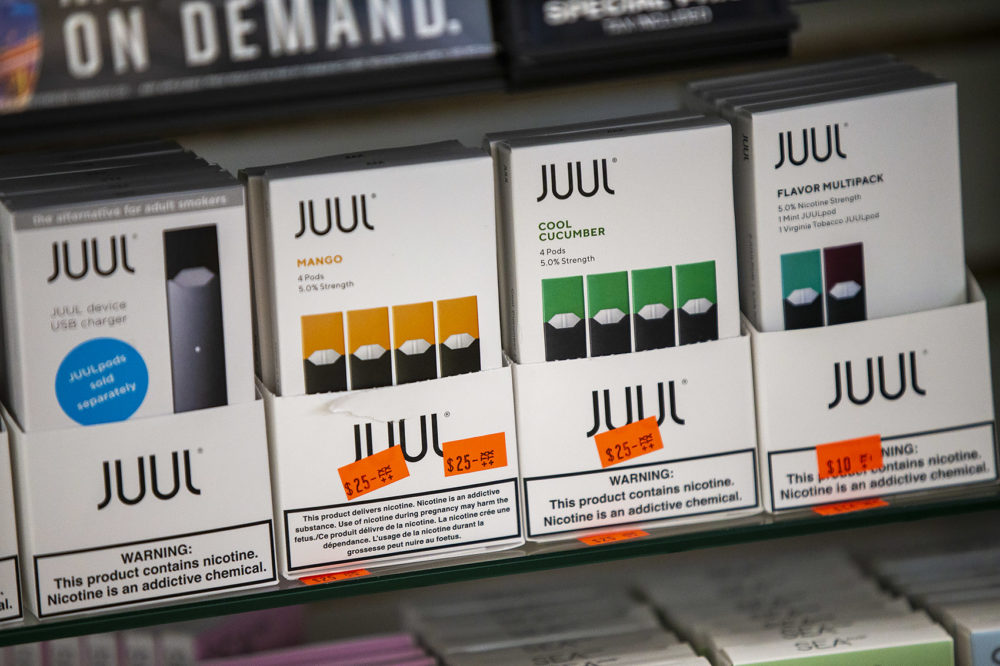Advertisement
'It’s Totally A Disaster': Ban On Vaping Products Frustrates Mass. Businesses
Resume
Pete Patel was excited about his new business venture as the owner of Liquid Smoke & Vape Shop in Allston. But just a few months in, that excitement has now turned to disappointment.
“It’s totally a disaster for us. For the whole industry," Patel said. "Now we have to close down.”
On Tuesday, Gov. Charlie Baker announced a four-month ban on sales of all vaping products — including tobacco and marijuana. The move has frustrated some local business owners, like Patel, who say the ban will ruin their business.
Patel opened his shop just six months ago. The store is lined with vaping products. Patel says they account for 60% to 70% of his total sales. Without those sales, he says his business just can’t survive.
“Everything now is zero value, you know. Everything is zero value for four months and we gonna lose the money, everything," Patel said shortly after hearing about Baker's announcement.

The ban on vaping products came down with no prior notice, catching Patel and some of his customers off guard. One customer came in Tuesday afternoon and picked up 10 packs of mint Juul pods, which are inserted into an electronic cigarette (like the popular brand Juul) for vaping.
"This is the last time you can get it," Patel told the customer.
The ban comes in response to a wave of lung illnesses and even some deaths related to vaping products across the country. There have been some cases of illness in Massachusetts, but no deaths. As of Tuesday, 61 suspected cases of vaping-related lung illness have been reported to the Massachusetts Department of Public Health. Three confirmed cases and two probable cases have already been reported to the Centers for Disease Control and Prevention. The rest are pending further clinical analysis.
Due to the cases, Baker declared a public health emergency and said the temporary ban will give officials time to gather more information about what’s causing these health issues.
"E-cigarette usage is exploding and it's clear there's a very real danger to the population," Baker said. "This temporary ban will allow state government and medical providers the time they need to understand the dangers and respond accordingly."
Some business owners say they understand the health concerns, but feel the state should figure out exactly what is going on before banning everything.
“It makes me angry. It does. It makes me angry because they're hurting small businesses, which are 21-plus," said Cathy McCarthy, the store manager at Fast Eddie’s Smokes Shop in Allston. "Why don't they go to liquor stores and ban raspberry mango vodka? If this is doing harm to you, they cannot say that alcohol isn't doing harm to you. That's proven. That's a proven fact."

McCarthy added she wants more regulations, such as restricting vaping products to stores that are only open to people over 21, like hers.
David Bershad, the owner of three local shops called Vape Daddy's, said the ban will just push people to the black market.
"People are gonna buy bathtub e-liquids, made by people who have no clue, and they're gonna be selling it on the streets and that will be, ultimately — at the four-month mark — the stake through the heart of vaping," Bershad told WBUR.
Massachusetts Cannabis Control Commissioner Shaleen Title is also concerned that people will look to the black market for vaping products and called the ban a "terrible decision."
"We need to regulate the product, how it's made, what it's containing, based on the evidence that we're getting about what's making people sick," Title said in a phone interview. "To remove the ability to regulate it now and purposely push people into the unregulated market where the dangerous products are, that goes against public health."
Many health organizations are welcoming the governor’s move. The Massachusetts Medical Society said "the lack of certainty as to why some of our patients have become so seriously ill underscores the urgent need for intervention."
The ban is scheduled to be lifted Jan. 25, 2020. It will be enforced by state and local officials. If businesses don't comply, the Department of Public Health says store owners could be fined, have their products seized or face other penalties.
This segment aired on September 25, 2019.
